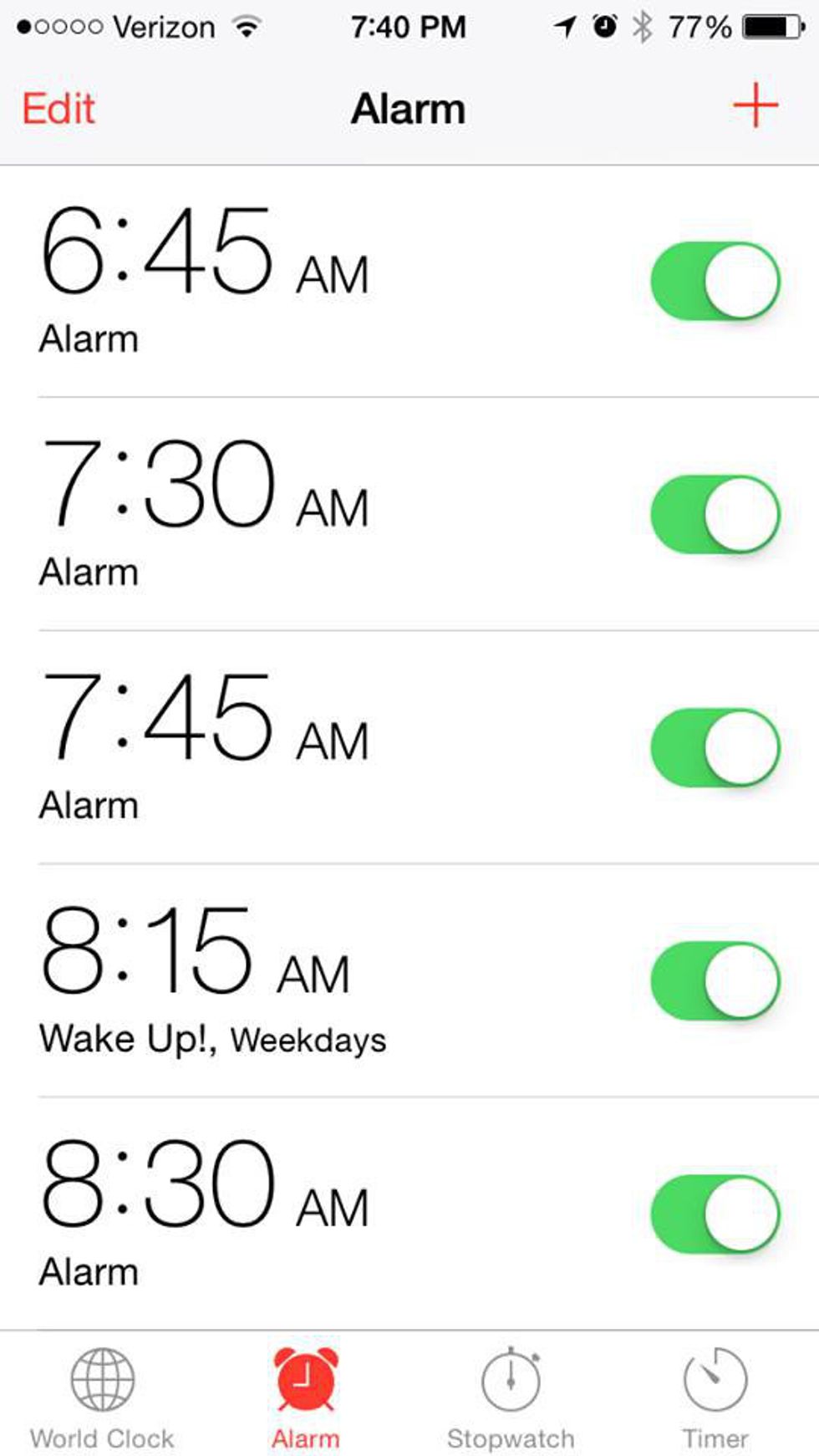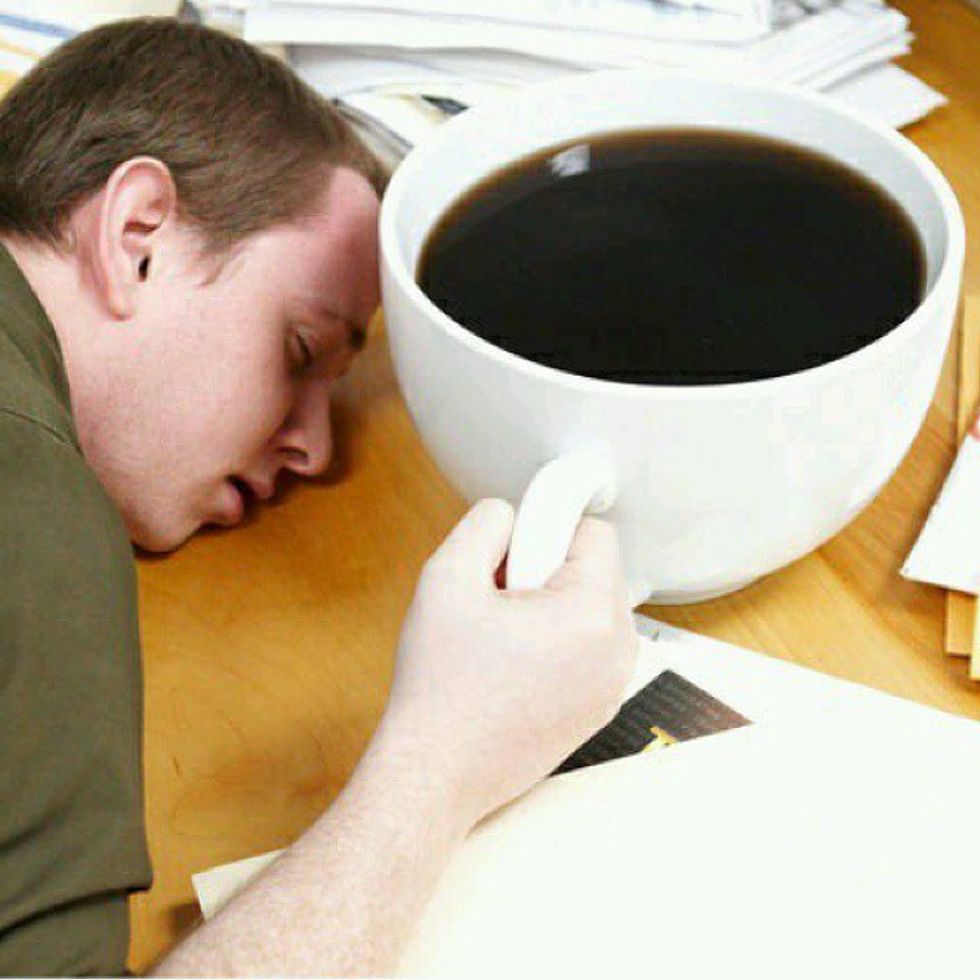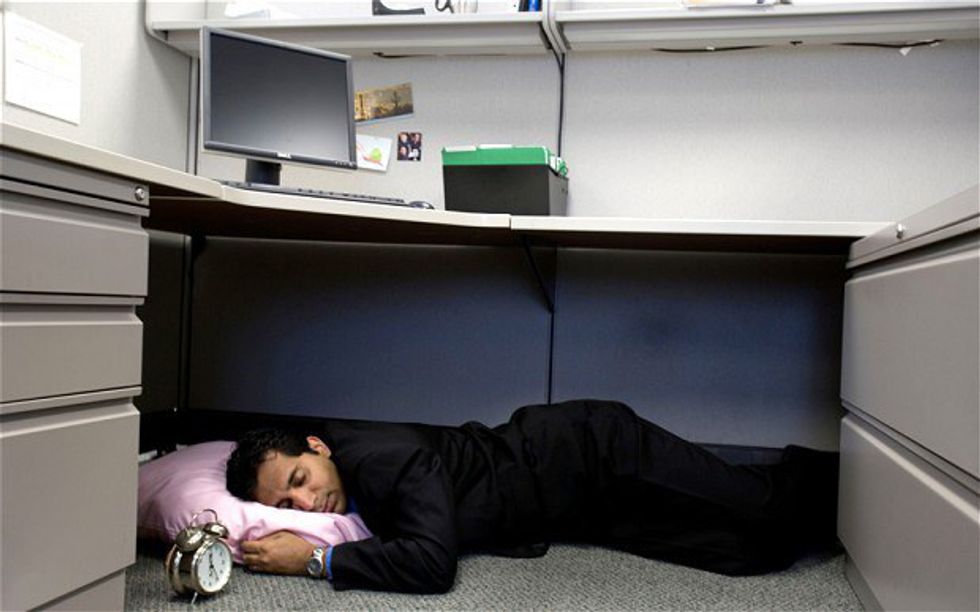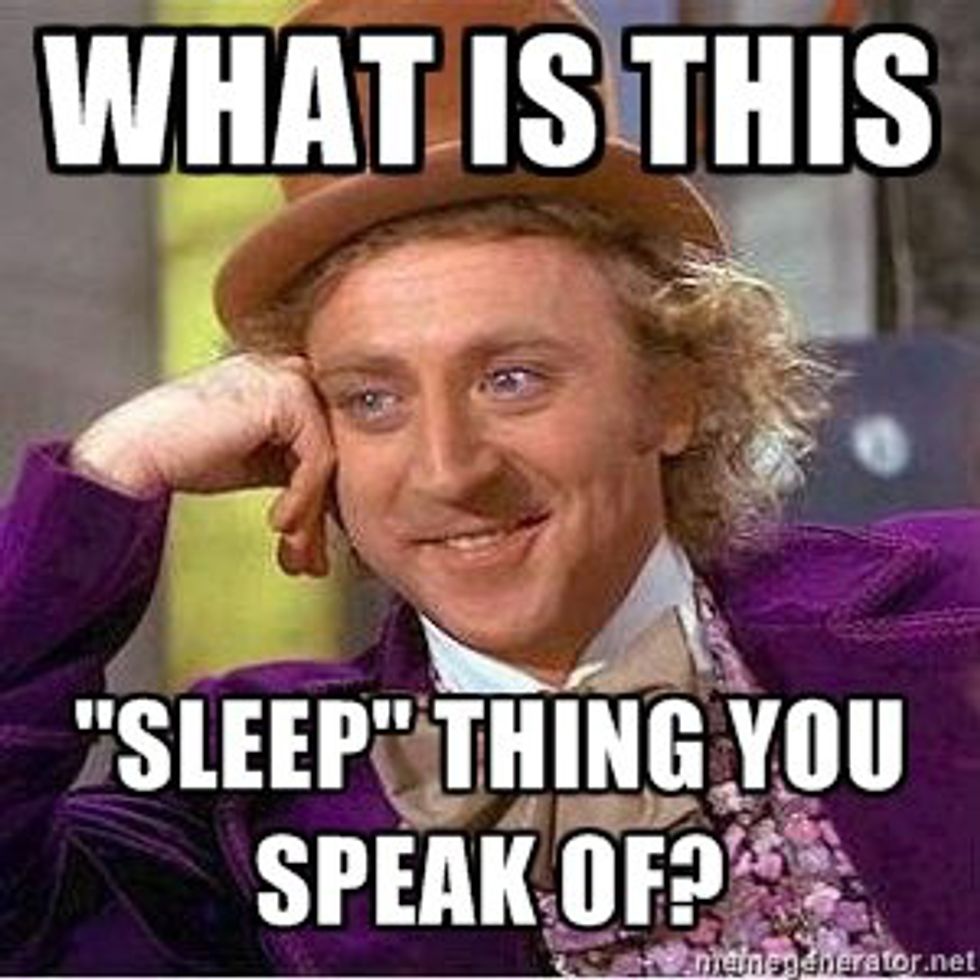Doctors suggest getting about eight hours of sleep a night, but is that really possible (at least during the week)? Between doing homework, socializing, working, getting more involved, and actually going to class it’s hard to find free time. It’s even harder to get everything done and go to bed before midnight. Constantly feeling tired is the worst, and it makes going about daily activities more difficult. Even though a lot of us don't want to think so, coffee is not the only solution to the ongoing problem of no sleep. Here are several tips to make your day better after a night of little to no sleep.
Set a few alarms.
If you absolutely hate the mornings (as in you go to sleep mad about having to wake up in only a few short hours) or are a heavy sleeper, one alarm won't do the trick. Heavy sleepers simply can’t hear one alarm, and those who aren't morning people hit the snooze button alarm after alarm after alarm. I suggest an absolute minimum of three alarms. Maybe even five.
Drink coffee.
Coffee may not be the morning drink for everyone, but for those of us who love it, it is our own personal miracle. On top of providing a boost of energy, its delicious taste makes the morning slightly more bearable.
Eat breakfast.
Eating breakfast is even more important than drinking coffee. Rather than having energy from a short caffeine buzz, breakfast provides nutrients and sustainable energy that will help you get through the day. It's not called the most important meal of the day for no reason.
Stay hydrated.
The last thing you need on top of sleep deprivation is dehydration. Not having enough to drink throughout the day could leave you feeling even more tired than before.
Take breaks.
If you don't get that much sleep and then have a full day of studying or work ahead of you, it is crucial to take breaks. Your brain (along with every other part of you) will be tired, and it will be hard to focus. Get up and walk around. Go outside. Go to the gym. Do something to get your body moving. Even though physical exercise is probably the very last thing you want to do, it will help you from feeling sluggish later on in the day.
Take naps.
This is probably the most obvious tip. If you can’t get a consecutive amount of sleep during the night, the best way to regain that energy is through increments throughout the day. It doesn’t matter if you take eight 15-minute naps or two one-hour naps, because either way you're getting two hours of sleep that you didn’t get the night before.
Repeat.
If not getting enough sleep has become a part of your daily (nightly?) life, these tips should become a part of your normal routine. Not only will they help make up for the lack of sleep, but they will leave you feeling slightly more refreshed and ready to take on the day.




























